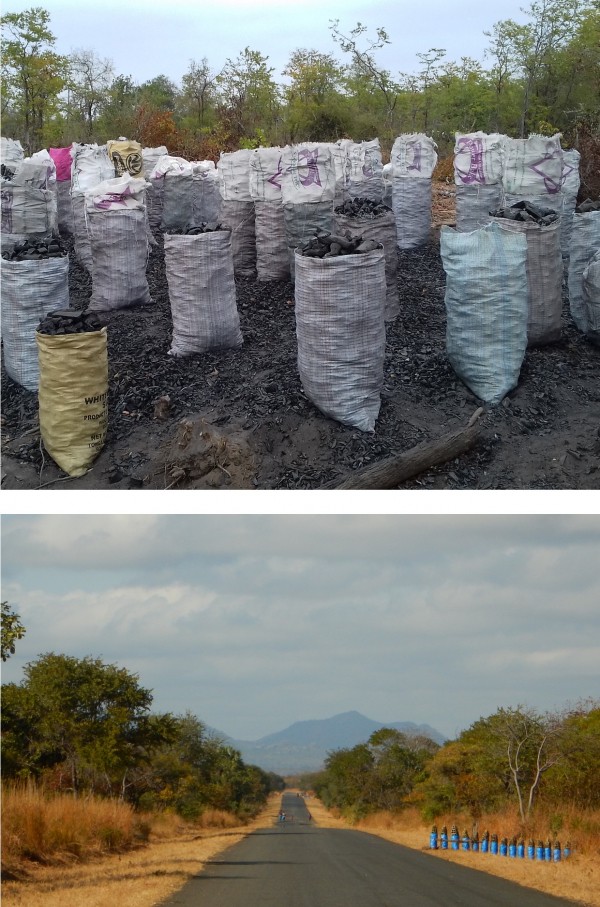What do we know about forest degradation in Africa?
Charcoal is an essential element of every day’s life in African cities, where it is used as cooking fuel by close to eighty percent of households. Charcoal is the result of a process in which logs and branches piled in kilns are carbonized under low oxygen combustion conditions. Most of this charcoal is produced from natural forests and woodlands, and the process is considered the main cause of forest degradation in sub-Saharan Africa. Recent studies in the region indicate that charcoal production could remove between 60 and 80 % of the standing aboveground biomass, representing up to 30 % of the total emissions from forest loss in tropical woodlands of sub-Saharan Africa. As the urbanization process in Africa intensifies, the growing demand for charcoal will pose an increasing pressure on African woodlands.
However, despite the magnitude of its present and future potential impact, forest degradation from charcoal production is still insufficiently understood and poorly quantified. With support from the NSF Coupled Natural and Human Systems and NASA Carbon Monitoring Systems programs, a group of international researchers lead by Dr. Fernando Sedano is developing remote sensing-based and modeling tools to characterize, monitor, quantify and forecast the impact of forest degradation associated with charcoal production in the tropical woodlands of sub-Saharan Africa. The team uses multitemporal datasets of medium, high, and very high resolution optical remote sensing data to map the extent and intensity of forest degradation due to charcoal production. Their work also combines remote sensing and ecosystem modeling to forecast potential forest regrowth trajectories under various charcoal production scenarios.
Working closely with stakeholder in the region, this research supports the development of more precise MRV REDD+ systems in sub-Saharan Africa and provides key information for decision makers and efficient policy interventions. The methods developed in this project will also enable the independent monitoring of emission inventories in support of international climate agreements.
Published on Wed, 09/16/2020 - 09:13


